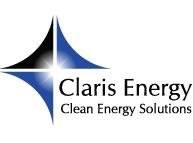 As the December holidays approach, Senate has taken the time to approve a tax extenders bill that will renew several energy efficiency incentives that expired in the end of 2013. As we reported earlier, analysts predicted that the bill will be approved before the beginning of 2014, providing energy efficiency incentives for yet another year.
As the December holidays approach, Senate has taken the time to approve a tax extenders bill that will renew several energy efficiency incentives that expired in the end of 2013. As we reported earlier, analysts predicted that the bill will be approved before the beginning of 2014, providing energy efficiency incentives for yet another year.
Senate approved the tax extenders bill with 76 votes in favor and 16 against. Only 60 votes are needed for such provisions to pass. The tax extenders bill will renew various energy efficiency initiatives, including the section 45L tax credits and section 179D energy efficient commercial building deductions.
All of the provisions included in the package will be extended to cover improvements made and projects executed throughout 2014. The bill will not be renewed for the tax year 2015, Forbes reported. Further extension will once again necessitate the involvement of Congress and it will probably be accompanied by lengthy debates.
The final step of the bill approval is expected to be completed within a week. President Obama will have to sign the provision into a law during the final days of December.
According to Forbes, the lengthy procedure that accompanied the passing of the bill will probably delay the opening of tax season. A start date to the 2015 season is yet to be announced by the IRS Commissioner.
Reuters quoted Senate Finance Committee Chairman Ron Wyden as saying: “With this tax bill, the Congress is turning in its tax homework 11 months late…this package of tax incentives will last just two weeks before families and businesses are thrown back into the dark with respect to the taxes they owe. The legislation accomplishes nothing for 2015.”
The tax extenders bill known as Tax Increase Prevention Act of 2014 involves some major tax breaks for wind power generation and energy efficiency research. Provisions like section 45L tax credits will help construction companies and other entities involved in energy efficient apartment and residential building development.
Homeowners that invest in green improvements will also get to enjoy the incentives that will come under the Tax Increase Prevention Act of 2014.
The tax extenders bill is expected to cost taxpayers 41.6 billion dollars in the coming 10 years. There haven’t been new federal sources dedicated to covering at least a portion of the amount. As a result, financial analysts worry that the tax extenders bill will contribute to larger budget deficit.
The energy efficiency portion of the extenders bill is worth 6.4 billion dollars. The credit for business research totals 7.6 billion dollars and slightly over five billion dollars will be dedicated to foreign profit tax deference.
There has been some controversy about the tax extenders bill and a number of questionable provisions are included in the total package. Still, energy efficiency and green energy production lobbyists are satisfied by the partial success. Though they pushed for a two-year extension of incentives like the section 45L tax credits, the Tax Increase Prevention Act of 2014 is certainly a move in the right direction.
Steve Nanos
Latest posts by Steve Nanos (see all)
- LED Lighting – A Great EPAct 179D Qualification Possibility - February 3, 2015
- 45L Credit Requirements for Begun Constructions - January 29, 2015
- Can Section 179D Incentives Help Businesses Save a Lot of Money? - January 27, 2015

 609.275.8484
609.275.8484